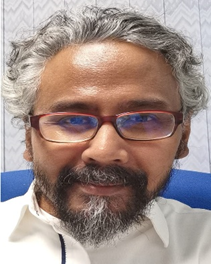Abstract
Kratom (or Mitragyna speciosa korth) has attracted more attention in recent times, largely owing to its opioid-like antinociceptive property and abuse liability. Native to tropical botanical habitat chiefly in southeast Asia, it has reached far and wide globally, indicating the undeterred cycle of supply and demand for this unique psychoactive plant. This is also partly due to the inconsistent regulatory policy between countries, expanded web-based accessibility, and strong claims of opioid-withdrawal pain relief among opioid addicts and habitual, recreational users. Despite a growing scientific literature on the plant and its known psychoactive alkaloids (in particular, mitragynine and 7-OH-mitragynine), many aspects of this plant remain elusive and require further characterisation. This talk aims to highlight the contemporary evidence on this psychoactive plant and areas of research opportunities.
Muzaimi Mustapha, PhD
Department of Neurosciences, School of Medical Sciences
Universiti Sains Malaysia

Muzaimi Mustapha, PhD
MUZAIMI MUSTAPHA MD, PhD is currently as an Associate Professor in Medical Neuroscience at the Universiti Sains Malaysia (USM), School of Medical Sciences, Malaysia. Over the past 10 years, he had championed various professional activities through the platform of the Malaysian Society of Neurosciences (MSN), having served as two-term MSN Vice President (2015-2020) and three-term Chairman for MSN’s Basic Neuroscience Council (2014-2021). He is also currently representing MSN as Governing Council member at International Brain Research Organisation (IBRO) and until 2022, was MSN representative at the Federation of Asia-Oceania Neuroscience Societies (FAONS) since 2016. He co-founded postgraduate mixed-mode neuroscience programme, the first of its kind in Malaysia at USM to train neuroscientists (at Masters and Doctorate levels). He is also a UNESCO Mentor Knowledge for Change (K4C) Consortium member and has an avid interest in community-neuroscience engagement. His research interests are in cerebrovascular and neurodegeneration, and others include brain rewards in addiction and cognition.